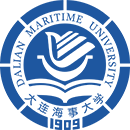The long history of the University represents the development of China’s higher maritime education, which can be traced back to 1909, when the Nanyang Institute in Shanghai established a Shipping Management Section. In 1960, the University was designated a national key university. In 1963, the semi-military management started in the ocean-going majors as authorized by the State Council. In 1983, the Asia-Pacific Region Maritime Training Center was established at DMU by the United Nations Development Program (UNDP), and the IMO. In 1985 a branch of the World Maritime University (WMU) was established. In 1997, DMU became one of the member universities of “Project 211”, a plan to build one hundred national-level universities in China. In 1998, it was the first maritime university in China to receive the ISO9001 Certificate. In 2017, the University was selected as one of the key universities which will participate in the country’s construction plan of world-class universities and first-class disciplines. Through continuous construction and development, the scale and the level of running school of the University have been prior to other maritime institutions in the world.
The University consists of 21 teaching and research units. The current student population has risen to approximately 20,000. Additionally, the university enrolls overseas students for bachelor, master and doctoral Degrees. Presently DMU has 7 post-doctoral programs (R&D base), 38 Doctoral programs, 115 master’s degree programs, and 49 undergraduate programs. Besides, DMU owns 2 national key disciplines, 14 key disciplines of provincial and ministerial level, 2 provincial key disciplines (nurture) and the engineering disciplines rank in 1% in ESI. DMU has 1 National Engineering Research Center and 2 national Science and Technology Cooperation Bases. The University is authorized to confer MBA, MPA, J.M, MTI, MEA, M. Eng., and on-the-job master’s degree. DMU has a highly qualified faculty team of 1168 staff, including 299 professors, 160 full-time doctoral supervisors, 31 professors of second grade, 63 professors of third grade and a large team of promising young lectures.
The University has an international vision regarding academic cooperation and exchange. Up to present, DMU has established cooperative relations with 120 international renowned maritime institutions in 33 countries and regions. The academic relationships with these sister universities are maintained through mutual visits, faculty staff and student exchanges, joint collaborative programs and joint research projects. In March 2005, the master’s program of Maritime Safety and Environmental Management started to enroll students. It is a cooperative program between DMU and World Maritime University. The University has an overseas campus in Colombo International Nautical and Engineering College, Sri Lanka and began to admit students in 2007 which realized the first export of China’s higher maritime education. Moreover, the University has established long-term cooperative relationships with international organizations and institutions, including the International Maritime Organization (IMO), the International Labor Organization (ILO), the International Association of Maritime Universities (IAMU), the Global Maritime Education and Training Association (GLOBALMET), the International Maritime Lecturers Association (IMLA), Asia-Pacific Economic Cooperation (APEC), Association of Southeast Asian Nations (ASEAN),The Baltic and International Maritime Council (BIMCO), the International Shipping Federation (ISF), the International Association of Classification Societies (IACS), Lloyd’s Register, NYK ,as well as some world famous shipping companies. Furthermore, the University develops creative education actively, establishes more educational channels and introduces educational sources.




